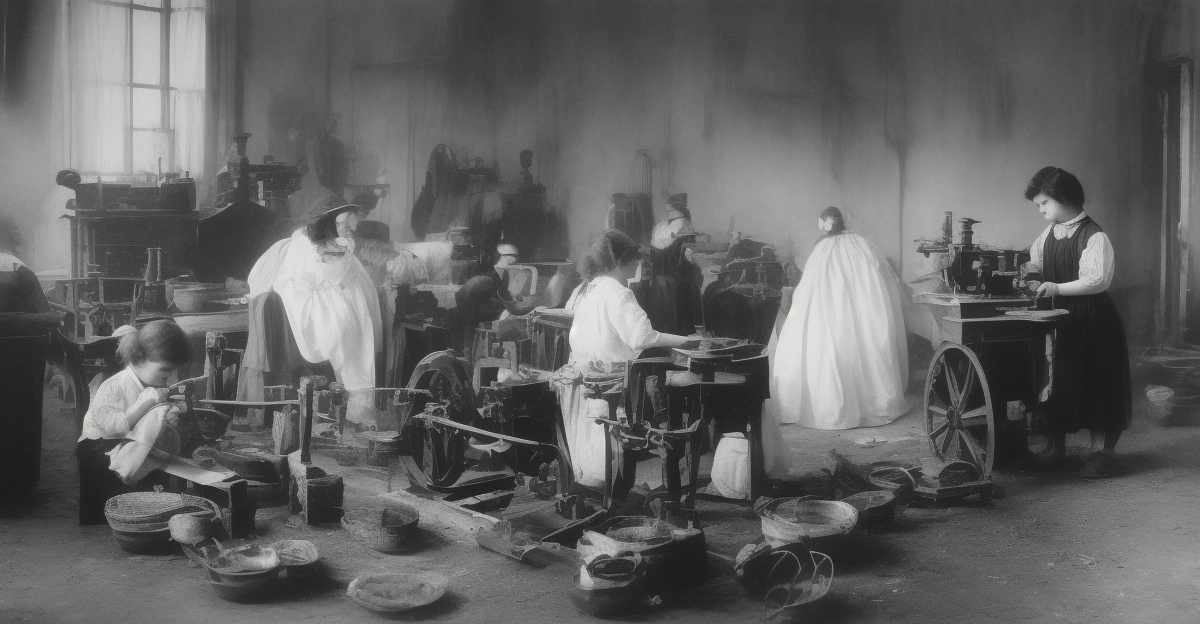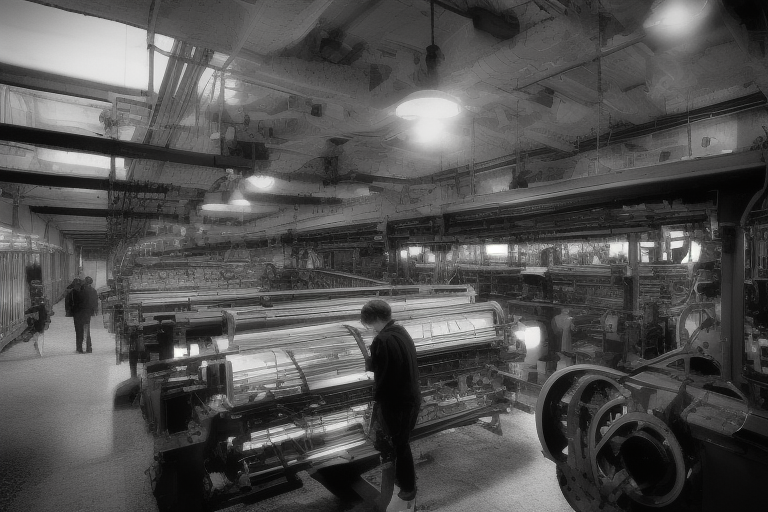
Did the grueling conditions of Victorian child labor inadvertently pave the way for a few young "sta
Could the seeds of entrepreneurial genius sprout even in the most desolate environments? Picture Victorian children, enduring harsh factory conditions. Could their struggle for survival have *unintentionally* cultivated skills that paved the way for future success? Was child labor, in a twisted way, the incubator for the first generation of young entrepreneurs?
History buffs and curious minds, gather ’round! Smash that like button if you’re ready to explore a truly unsettling chapter of history.
Today, we’re diving deep into the Victorian era to examine a controversial idea: could child labor have *inadvertently* fostered the first teenage entrepreneurs?
The School of Hard Knocks: Unintended Education Through Exploitation
Let’s be clear from the outset: child labor was a horrific reality, a dark stain on human history.
But, is it possible that the desperate need to survive in those brutal conditions inadvertently nurtured skills that later translated into entrepreneurial ventures?
Factory Floors as Classrooms: Specific Skills Learned
Consider this: children in textile mills weren’t simply cogs in a machine. They were learning the intricacies of complex machinery. They were identifying flaws in the fabric, essentially performing quality control.
Often, they were responsible for maintaining the machines, developing rudimentary repair skills.

Forged in Fire: Resilience, Problem-Solving, and Negotiation
Imagine the daily gauntlet these children faced: navigating dangerous machinery, enduring the demands of ruthless supervisors, and coping with injuries and illness.
Survival hinged on resilience, quick thinking, and the ability to negotiate for slightly better conditions. These skills, forged in the fires of hardship, are invaluable in the entrepreneurial arena.
Task-Cultivated Business Acumen: Examples in Action
Envision a child managing a team of younger workers, overseeing the flow of materials, or even negotiating prices with suppliers (however limited their leverage).
These experiences, though born of exploitation, offered a crash course in leadership, logistics, and basic economics.
Necessity as Opportunity: Access to Resources and “Side Hustles”
While opportunities were scarce, the factory environment, ironically, sometimes provided access to resources that could be leveraged for small-scale entrepreneurial activities. We’re not talking about ethical business practices, but rather the desperate measures taken to survive and potentially improve one’s lot.
Acquiring Raw Materials: Reduced Prices and Risky Ventures
Let’s be blunt: theft and the repurposing of waste were likely common practices. A child might pilfer small amounts of raw materials – thread, coal, even scraps of metal – to be resold or repurposed.
Leveraging Factory Networks: Informal Trading and Connections
Factories were bustling hubs, connecting workers from diverse backgrounds. This fostered informal networks for trading and distributing goods outside the formal workplace.
A child might act as a middleman, connecting producers with consumers, earning a small commission on each transaction.

Pooled Resources: Collaborative Ventures Born of Desperation
Imagine a group of young workers pooling their meager resources to buy tools or materials, then working together to produce goods for sale.
This is a rudimentary form of a startup, driven by necessity and a shared desire for economic independence.
The Illusion of Control: Early Ventures and Hidden Profits
Piece-work, where children were paid based on the quantity of goods produced, offered a semblance of economic autonomy. While the wages were meager and the conditions appalling, it fostered a sense of independent economic activity, however limited.
Engaging in “Piece-Work”: Managing Scraps of Earnings
Even with paltry earnings, the act of managing their own money – deciding how to spend, save, or invest it – instilled a sense of financial responsibility and independence. This early exposure to economic decision-making could have laid the groundwork for future entrepreneurial endeavors.
Documented Cases: Saving and Investing Against All Odds
Documented cases of children saving and investing small sums are rare, but they do exist.
These small acts of financial prudence, often hidden from exploitative parents or employers, represent a nascent understanding of capital accumulation and investment.
Psychological Impact: The Seeds of Economic Independence
The psychological impact of early economic independence, however limited, shouldn’t be underestimated. It fostered ambition, a drive for self-sufficiency, and a belief in one’s ability to control their own destiny, despite the overwhelming odds.
Ethical Considerations: Acknowledging the Unacceptable
It’s crucial to address the elephant in the room: the inherent exploitation and moral implications of child labor. We cannot, and should not, romanticize hardship or minimize the suffering endured by these children.
Addressing the Inherent Exploitation: A Violation of Human Rights
Child labor was, and remains, a violation of human rights. The fact that some children may have developed entrepreneurial skills as a result of their exploitation does not excuse or justify the practice.

The Dangers of Romanticizing Hardship: Avoiding Oversimplification
It’s tempting to draw parallels between the “grit” and “hustle” of Victorian child laborers and the entrepreneurial spirit celebrated today. However, this is a dangerous oversimplification.
Limitations of Historical Data: Approaching the Topic with Caution
Finally, it’s important to acknowledge the limitations of historical data. Accurately assessing the true extent of child-led entrepreneurial activities is difficult, if not impossible.
Records are scarce, and the stories of these young workers often went unrecorded.
So, what do you think? Can we extract any positive lessons from the ingenuity displayed in the face of such unimaginable adversity, or is it simply a stark and horrifying reminder of the human cost of unchecked capitalism? Share your thoughts in the comments below!
Enjoyed this? Check out our YouTube channel for video versions!
Enjoyed this? Check out our YouTube channel for video versions!



